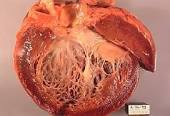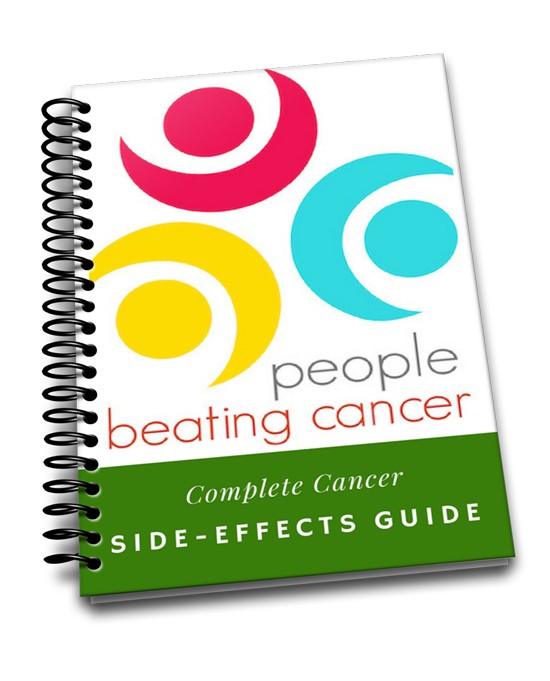Therefore, curcumin is considered to be a new therapeutic candidate for cardiovascular disease, including idiopathic pulmonary arterial hypertension…
The article linked and excerpted below is talking about curcumin’s ability to reduce hypertension aka blood pressure. Because increased blood pressure has been shown to cause cardiovascular disease, curcumin is cardio-protective as well as being anti-cancer, anti-inflammatory, anti-oxidant, etc.
What is a long-term cancer survivor and cancer coach doing talking about cardiovascular disease any way? A number of chemotherapy regimes are known to be cardio-toxic. They can kill cancer but can damage your heart at the same time. As the saying goes, the cure is worse than the disease.
Among the many chemotherapy regimens that I underwent during my active conventional therapy after my cancer diagnosis, were four cardio-toxic chemotherapy regimens.

I developed chronic A-fib in the fall of 2010.
My long-term cancer survival taught me that there are many complementary and/or integrative therapies that can work individually or in combination with conventional (FDA approved) therapies.
Curcumin is one of those complementary/integrative therapies. Do you have chronic a-fib? Do you have high blood pressure? Scroll down the page, post a question or comment and I will reply to you ASAP.
thank you,
David Emerson
- Cancer Survivor
- Cancer Coach
- Director PeopleBeatingCancer
Recommended Reading:
“Hypertension (HTN or HT), also known as high blood pressure (HBP), is a long-term medical condition in which the blood pressure in the arteries is persistently elevated.[11] High blood pressure usually does not cause symptoms.[1] Long-term high blood pressure, however, is a major risk factor for stroke, coronary artery disease, heart failure, atrial fibrillation, peripheral arterial disease, vision loss, chronic kidney disease, and dementia.[2][3][4][12] Hypertension is a major cause of premature death worldwide.[13]
High blood pressure is classified as primary (essential) hypertension or secondary hypertension.[5] About 90–95% of cases are primary, defined as high blood pressure due to nonspecific lifestyle and genetic factors.[5][6] Lifestyle factors that increase the risk include excess salt in the diet, excess body weight, smoking, and alcohol use.[1][5] The remaining 5–10% of cases are categorized as secondary high blood pressure, defined as high blood pressure due to an identifiable cause, such as chronic kidney disease, narrowing of the kidney arteries, an endocrine disorder, or the use of birth control pills.[5]…”
“These findings indicate that curcumin down-regulates AT1R expression in A10 cells by affecting SP1/AT1R DNA binding, thus reducing AT1R-mediated vasoconstriction and subsequently prevents the development of hypertension in an Ang II-induced hypertensive model…
Curcumin, which is the main active constituent of turmeric, exerts anti-oxidant, anti-bacterial, anti-fungal, anti-viral, anti-inflammatory, anti-proliferative, pro-apoptotic and anti-atherosclerotic effects…
Previous studies have demonstrated that curcumin possesses strong antioxidant and cardioprotective properties. Therefore, curcumin is considered to be a new therapeutic candidate for cardiovascular diseases, including idiopathic pulmonary arterial hypertension, glomerular hypertension and L-NAME-induced hypertension7,8,9,10,13
Our present study showed that curcumin lowers the blood pressure in Ang II-induced hypertensive C57Bl/6J mice, and this anti-hypertensive effect is partially attributed to the inhibition of AT1R expression in arteries…
Whether or not there is a synergistic or additional effect between curcumin and other anti-hypertensive medicines, including ARBs and ACE inhibitors, needs to be identified in the future...
The Most BioAvailable Curcumin Formulas
“Based on a review of these studies, it is evident that better bioavailability of formulated curcumin (CU) products is mostly attributed to improved solubility, stability, and possibly low first-pass metabolism”
A search of the Pubmed database for the word curcumin yields 601 studies spaning health topics from multiple myeloma and colorectal cancer, to chemotherapies that synergizes with CU, to Alzheimer’s Disease, arthritis and more. Based on years of reading studies and personal accounts, I think it is safe to say that CU supplementation is safe and relatively inexpensive.

I have read about myeloma patients taking daily doses of CU from 400 milligrams to 8 grams (1000 milligrams = 1 gram). By almost any measure, CU is a safe, inexpensive wonder drug.
The only challenge is that CU is famously difficult to absorb in the body. In other words, a person has to mix curcumin with some sort of fat (coconut oil, chocolate, etc.) or take a brand of curcumin capsule that is already formulated to be more “bioavailable” in order to derive the full benefit of CU.
The study linked and exerpted below reviews different formulations of CU. The study itself lists the three most bioavailable formulation/brand of CU and I’ve added an excerpt from a further review from Consumerlab.com that lists four additional bioavailable brands of CU.
I consult the independent evaluation service Consumerlab.com frequently. For one low annual payment, I can read about and evaluate all of the nutritional supplement that I take.
Recommended Reading:
“CU is a bright yellow chemical produced by some plants. It is the principal curcuminoid of turmeric (Curcuma longa), a member of the ginger family, Zingiberaceae. It is sold as an herbal supplement, cosmetics ingredient, food flavoring, and food coloring.[1]“
“Curcumin is a widely studied natural compound which has shown tremendous in vitro therapeutic potential. Despite that, the clinical efficacy of the native CU is weak due to its low bioavailability and high metabolism in the gastrointestinal tract. During the last decade, researchers have come up with different formulations with a focus on improving the bioavailability of curcumin. As a result, a significant number of bioavailable curcumin-based formulations were introduced with the varying range of enhanced bioavailability.
The purpose of this review is to collate the published clinical studies of CU products with improved bioavailability over conventional (unformulated) CU. Based on the literature search, 11 curcumin formulations with available human bioavailability and pharmacokinetics data were included in this review. Further, the data on clinical study design, analytical method, pharmacokinetic parameters and other relevant details of each formulation were extracted.
Based on a review of these studies, it is evident that better bioavailability of formulated curcumin products is mostly attributed to improved solubility, stability, and possibly low first-pass metabolism. The review hopes to provide a quick reference guide for anyone looking information on these bioavailable curcumin formulations.
Based on the published reports,
exhibited over 100-fold higher bioavailability relative to reference unformulated CU. Suggested mechanisms accounting for improved bioavailability of the formulations and details on the bioanalysis methods are also discussed.”
According to Consumerlab.com:
“Novasol has the highest bioavailability (185 x compared to unforumulated CU), followed by Curcuwin (136 x), Longvida (100 x), Meriva (48 x), BCM-95 (27 x), Curcumin C3 Complex + Bioperene (20 x), and then Theracumin (16 x).”
APPIP ERROR: amazonproducts[
AccessDeniedAwsUsers|The Access Key Id AKIAJAJ37JVNL7OUU4CA is not enabled for accessing this version of Product Advertising API. Please migrate your credentials as referred here https://webservices.amazon.com/paapi5/documentation/migrating-your-product-advertising-api-account-from-your-aws-account.html.
]





